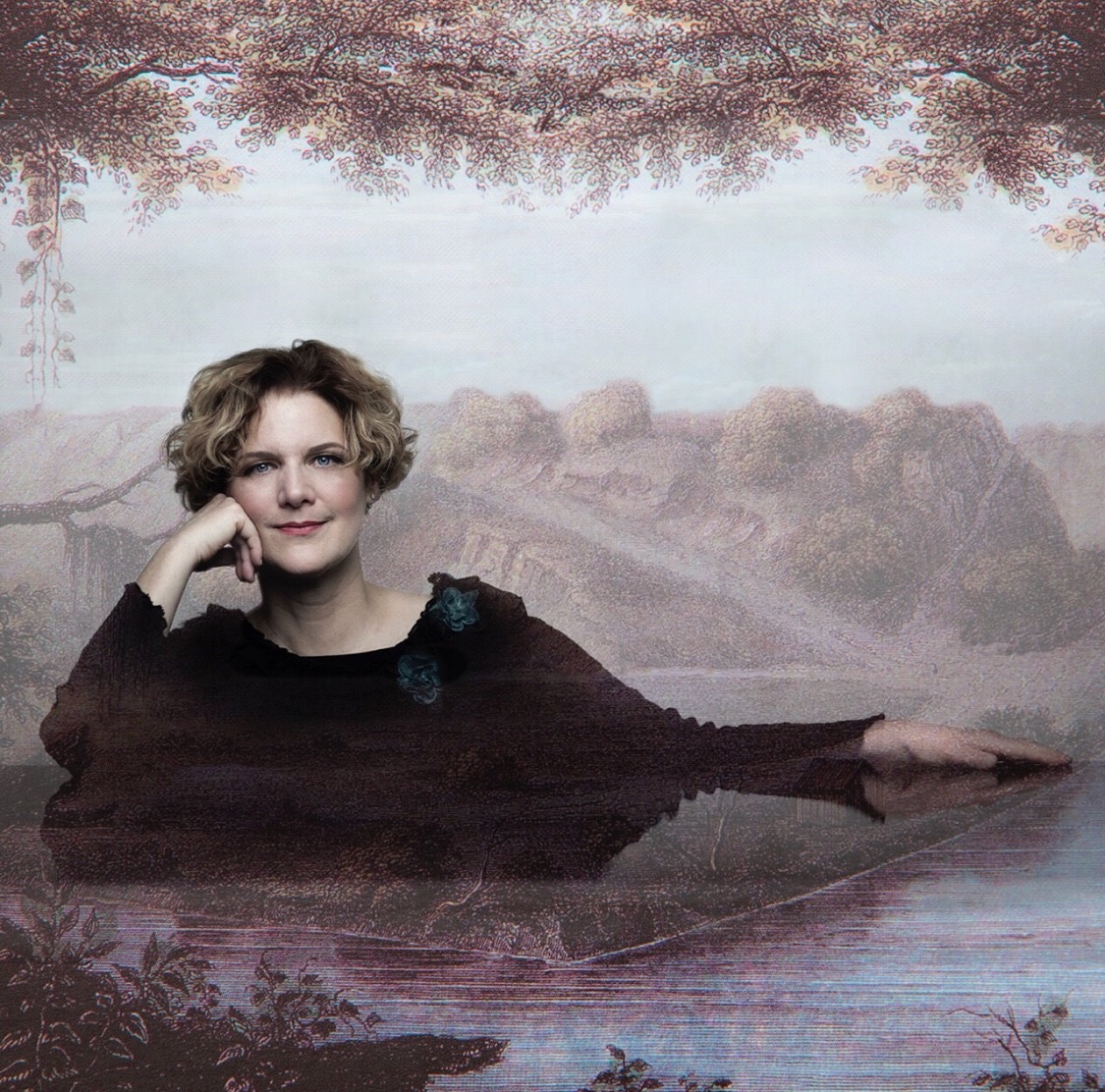
Aside from being one of the baddest players in town, effortlessly slipping from BeBop to Bach, to original music coated in modern sounds, Laura Caviani is also an educator. She has served as a guest artist and clinician at high schools and universities all over the Midwest, and now runs the jazz program at Carleton College. As a composer, Laura has been frequently commissioned, writing large-scale works for a variety of ensembles, most recently the chorus.
When I moved to the Twin Cities, my mentor Fred Sturm told me that I absolutely had to meet Laura Caviani. Laura had been at Lawrence University in the 80s, and studied with Fred there, as well as at Eastman School of Music (where she attended the Summer camp with prominent jazz composers Patty Darling and Maria Schneider…no big deal). Fred must have told Laura I was coming. She enthusiastically insisted we play together and started connecting me to the freelance educator scene. Since then, I’ve worked all over the world as a Guest Artist and clinician, and have had the pleasure of playing with Laura on many occasions, each with its own set of magical musical moments. No doubt, I am indebted to her for all the work she throws my way.
I had a conversation with Laura, and turned on the microphones. The following is an edited transcription of our conversation.
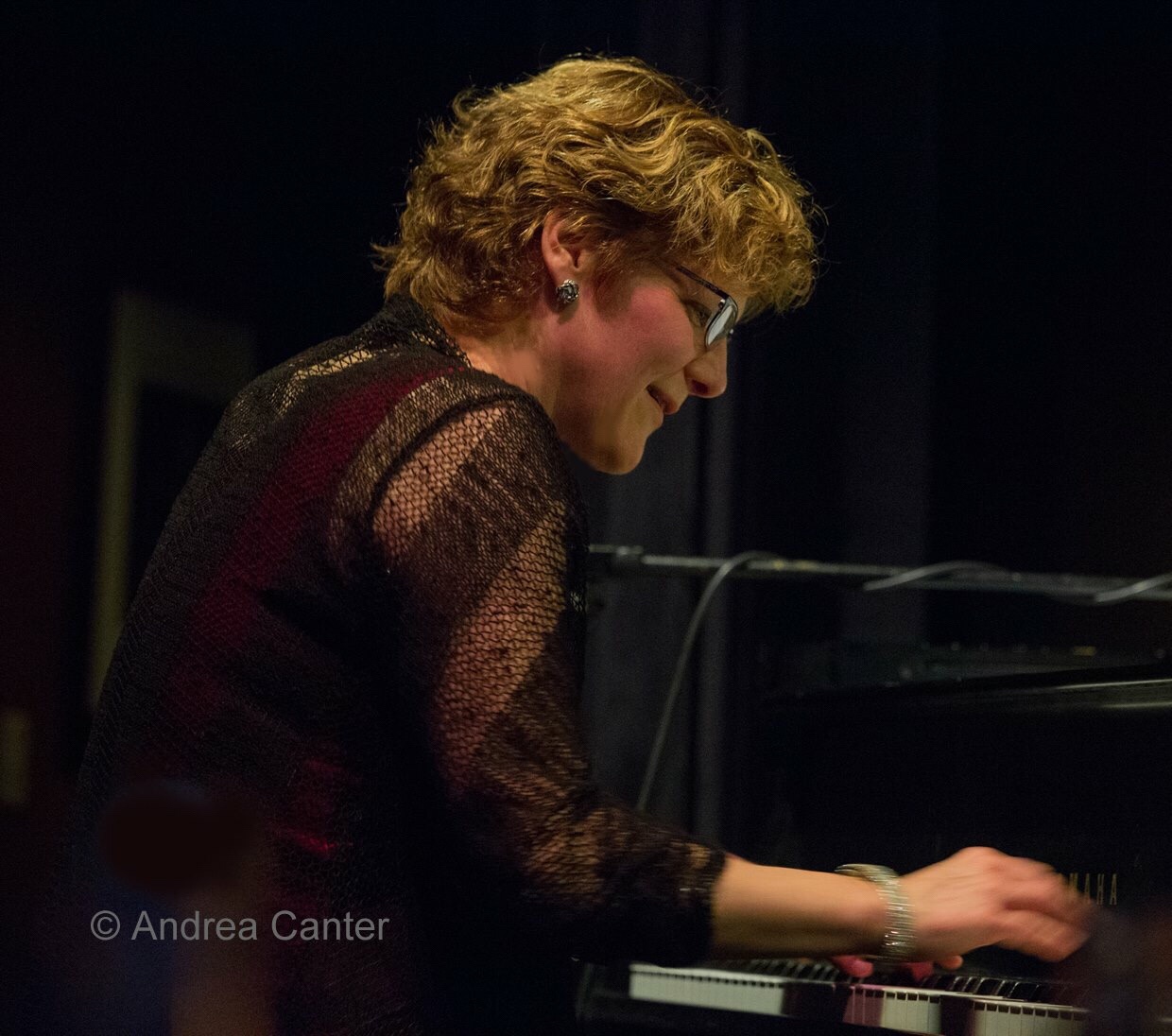
Welcome, thanks for coming and hanging.
Hi, Adam. Thank you for inviting me. It’s great to see you.
Great to see you, too! Your new trio record Confluence came out in 2017. Was that original music?
Yes, the center part of the project was inspired by Shakespeare’s A Midsummer Night’s Dream. Mary Kay Geston, who conducts the Great River Choral, commissioned me to write a choral work for one of their concerts (this is a few years ago now), and I said “sure!” She said that it had to be inspired by Shakespeare, because that was the theme of the concert. I had played Titania from A Midsummer Night’s Dream in high school, so I knew the play. That was the one I gravitated towards. I was halfway through completing the piece and I thought “wouldn’t it be cool to write a few instrumental pieces as cushion around the one piece?” Mary said “absolutely, we’d love to feature your trio between the pieces.” So I wrote five pieces inspired by A Midsummer Night’s Dream that are trio based. Chris Bates and Dave Schmalenberger were both on the program, and then after the concert Chris said “you really should record this stuff,” and then we did, and the rest is history.
So it’s Chris Bates on Bass and Dave Schmalenberger on drums. I’ve played with them both and just love both of their playing. I think the record sounds great…Boogaloo for Mary Lou…man that’s killing!
Yes. Mary Lou Williams. Thank you, fun. Actually, I have a big band arrangement of that one.
That you did.
Yes.
Nice. Tell me about how you got started. Where did you grow up?
I grew up in Saint Cloud, and I was fortunate to have really great music teachers throughout my childhood.
Did you start on piano?
I started on piano when I was three, and I started on trumpet in 5th grade.
That’s right! A trumpet player. I forgot about that!
Yeah, trumpet was everything to me. But I kept them separate. I did a little classical on trumpet but mostly jazz on trumpet and then classical piano. I separated them out. And classical composition, but not jazz composition. So in my head it was “okay: piano is for classical, jazz is for trumpet” and then I got to college and everything got blown out of the water…because of Fred Sturm.
Yes, Lawrence University, Fred Sturm.
We have that in common.
We do. When did you decide you were going to play jazz on piano? Did you quit trumpet at that time?
No! I played trumpet in the Air Force Band after graduating from college. So I was playing trumpet then.
Wow, I didn’t know that.
Yeah, that was for love. I fell in love, and he enlisted, so I enlisted with him. For four years I was in the Air Force Band of the Midwest. Even then I was only playing classical trumpet. Marching band.
Okay, so backup: in college I didn’t play any jazz piano, I just composed jazz. So my undergrad was in composition.
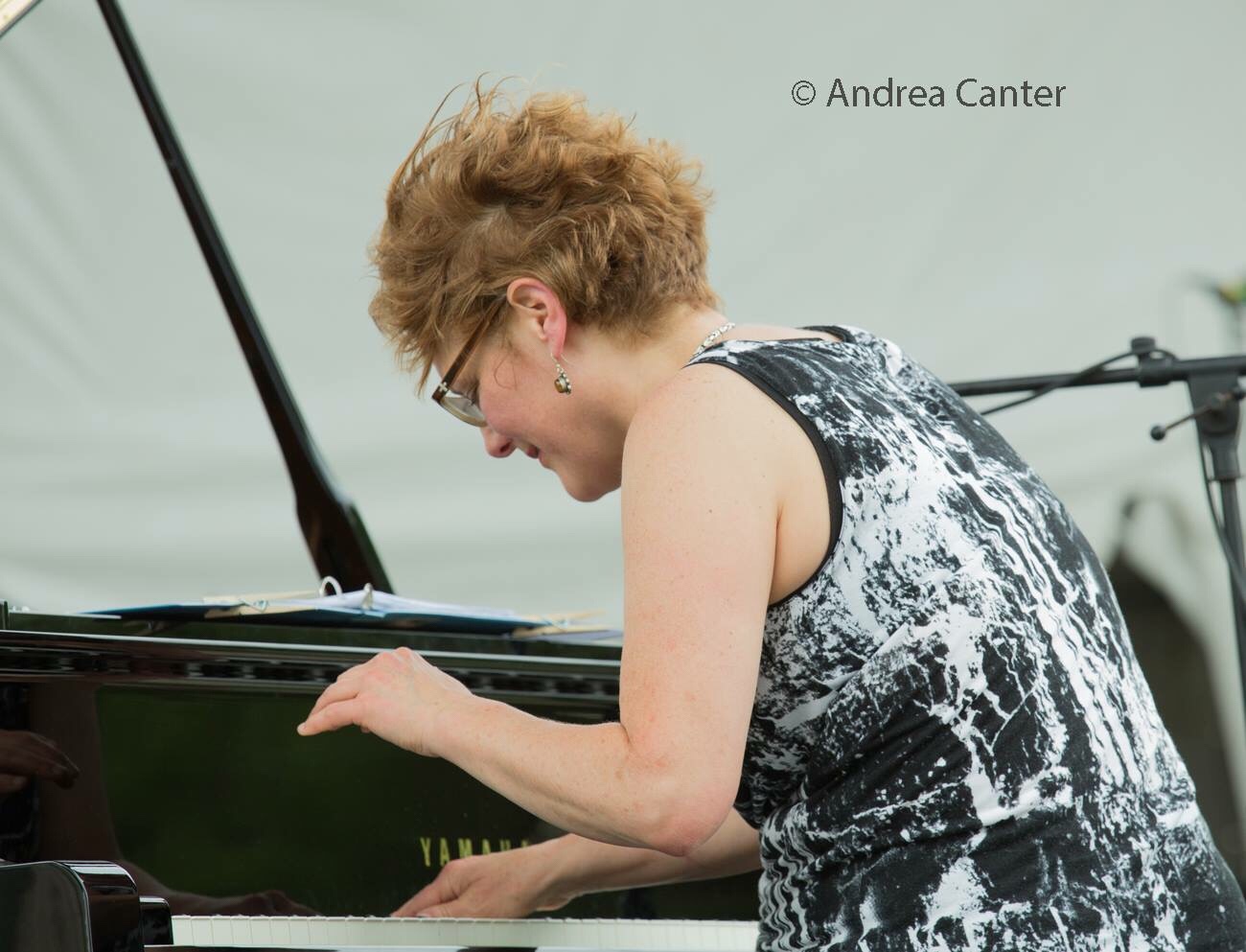
Interesteding. So did you study comp with Fred?
Well yeah, my two classes with him were jazz improv, and jazz arranging.
Was it structured like you write small group, nonet, then big band like it was when I was studying with him?
No, it was very much different than that. he told me after the fact “oh I teach that class so differently now, Laura, I wish you could take the class again” – that’s the way Fred was: he was always improving his game, always trying to make things better.
Yep, that’s it right there.
I just miss him so much. We started with Sax soli and rhythm section. Then some more sectional composing, and he used the Rayburn Wright book.
Yeah, Inside the Score.
…And he invited me and Patty Darling and a few others to go to the Eastman School of Music Summer program, and I did that. Twice, actually. I did that in the 80s and then again in the 90s.
Cool. That’s obviously after Fred left LU went to Eastman?
Right, so the first time he was actually completing his masters there and invited us to come out. I studied with Manny Albam, who is passed away now. Rayburn Wright was there, Patty Darling was there.
Did Patty go to Lawrence, too?
Yeah
I just played one of her pieces. Vortex. Cool piece. She’s a really cool writer.
Yeah, we’re working on one of her pieces from the Radiohead Project right now: Optimistic. It’s really hard!
So yeah, composition in college, but that’s where I learned how to play jazz piano: in the Air Force. Actually, I got in as a vocalist, because he didn’t have an opening for a pianist. I was nonplussed because they would only let me sing like two tunes a month! It did not take me long to realize that I’d much prefer to play piano in the band. I had no idea what I was doing, but I told him I did. But I would drive up and take lessons from Frank Mantooth, he was my teacher after college.
Wow, cool! Were your parents musicians? Can we back up for a minute?
Yeah, my dad was an amazing singer, and he played a little trombone, and he love love loved jazz. So I grew up listening to Oscar Peterson, Miles, Sarah Vaughn, Dave Brubeck, Modern Jazz Quartet, a little Ray Charles, maybe. My mom was the Mahler, Wagner, Gustav Holst…She was a cellist in her day. So I literally had them compartmentalized.
So jazz from your dad, classical from your mom. And now you’ve taken both sides and put them together with your Bach to Bop thing. How did that project come about?
I’m not kidding you, it was all attributed to Thelma Johnson, Gordy Johnson’s mom. She said “why don’t you come over and play duets with me?” I hadn’t played classical music in so long. It was so much fun, and that inspired me to go back and check out all my old classical pieces. I realized I could just do a harmonic analysis and use it as a vehicle for improvisation. That spun out a whole bunch of unique projects. You were part of that project at the Hopkins center. And since then David Milne and I have done a stripped-down version in duo. For example, we’ll be playing in May at Crooners in the Dunsmore Room. He really likes the impressionistic composers. We’ll be doing Debussy and Ravel. That project hasn’t been recorded quite yet.
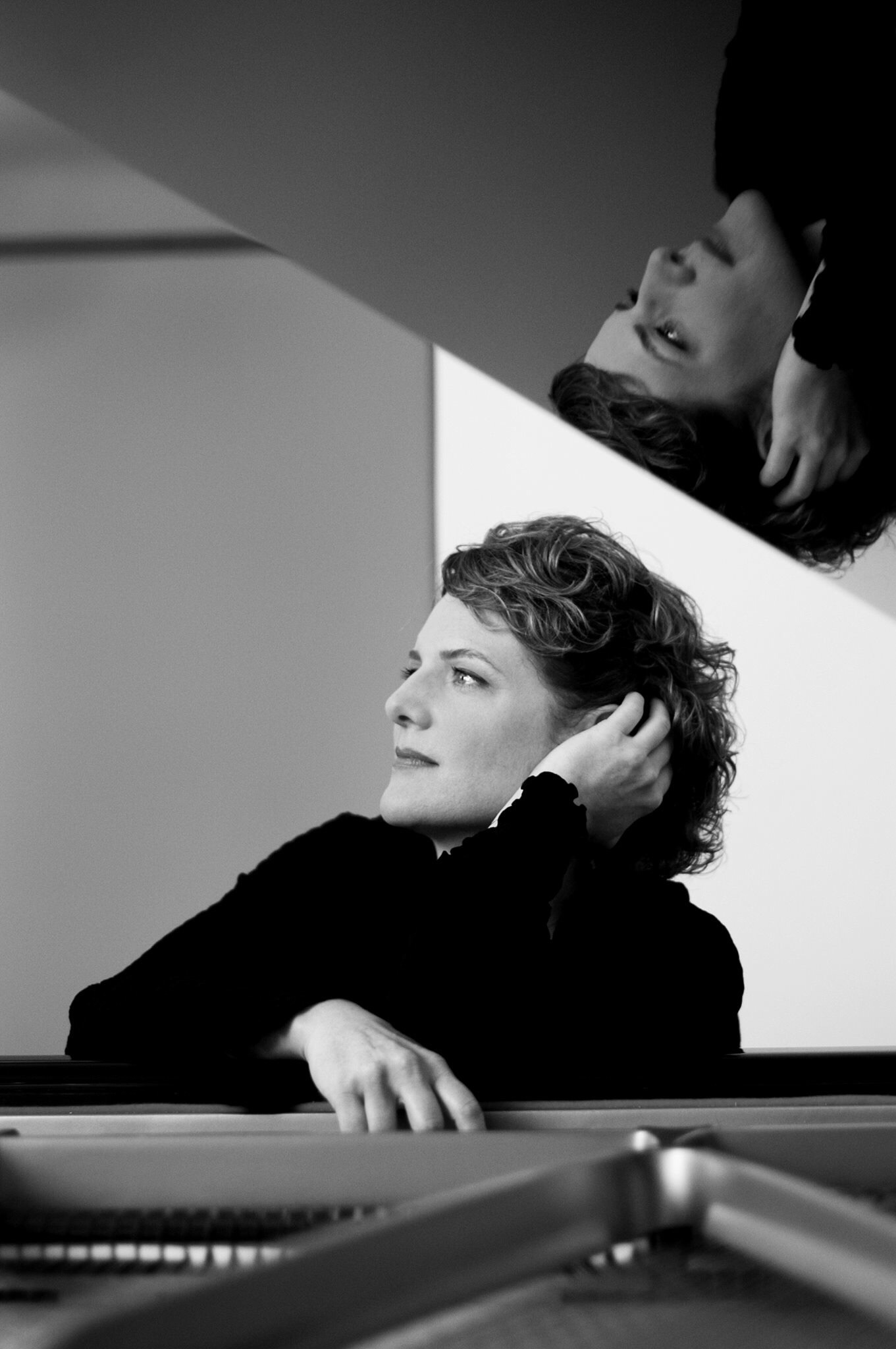
So you did the Eastman camp a couple times, and you joined the Air Force Band…
Being in the Air Force band really allowed me to do more composing. I got my chops together there. I got out in 89 and tried my hand at some freelancing, and around that time is when I met Karrin Allyson. She moved into town, and we met at an Ahmad Jamal concert. I learned so much from her. She taught me how to run a band, how to get my charts together, how to finagle counting off tunes. She was a very fine leader from the beginning. And then she moved down to Kansas City and would bring me down there to play with her.
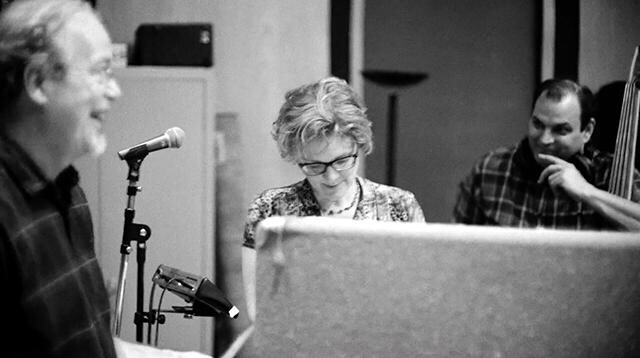
Did you do a lot of touring together?
We did do a bunch of touring. I toured with her three times. In 98 we went to Japan. I got us that gig, so I feel pretty good about that. That was an Air Force connection. And then we did two Concorde tours in 03 and 04.
Now Karrin is based in New York and still recording and touring. For our latest project, I wrote a song inspired by the Emma Lazarus poem “give me your tired your poor…” Very poignant these days. I set that to music, and she recorded it. We will probably just release it as a single.
Did you do video too?
We’re looking at it but we haven’t done that yet. You would know more about that.
I’m not an expert by any means, but I feel like especially now, videos are everything. Of course people still listen to music with giants like Spotify, but I feel like Internet-based listening is all video-based. We could either fight that, or embrace it and find a creative side with video too.
Yeah very well said, times are changing. It’s fun to look back but you’re smart to look ahead. what function does music serve? I would argue As an educator music serves more more of an important function than ever. We really do need to ensure that creativity is nurtured. And also innovation is nurtured. These young people, they come to me and say “what do we do, what are the rules?” and then they find out that there are no rules, and it’s a little daunting. They are used to being told “do this do this do this do this” but then find out there are no rules. Really the sky is the limit.
I feel like it’s the same approaching something like Spotify to listen to music. Maybe you’re a young person that wants to listen to jazz, but you log onto Spotify and there’s literally an infinite landscape of music. It’s almost paralyzing. Paralysis by analysis. It’s so easy to get that you don’t ever try and get it. Even for me as a kid, I still had to buy records. I had my foot in both worlds. Napster was a thing late middle school early high school for me. My brother downloaded 1000 songs one day and I was like “what’s going on?” I was going to stores and buying CDs and tapes. My teacher would say “you need to get a Louis Armstrong album.” So I would go find Louis and Ella. That was my first Jazz CD. I had to go to the store, I had to save money, I had to buy a CD, and then I listened to that CD like 6 million times. The language absorbs more when you listen to the same record over and over and over again, as opposed to just doing this playlist track by track thing. Kind of a pet peeve of mine.
I remember in college asking Fred point blank, “Come on Fred, there must be one woman you would reccommend.” And he said Mary Lou Williams. Of course I didn’t get to it until the hundredth anniversary of her birth. I had dabbled in Mary Lou but I hadn’t really sat down and transcribed and emulated her, in the way that you’re describing. She had huge hands and made it sound so easy. And when I sat down and tried to actually emulate her I was like this is hard! And what’s beautiful about it is that it gets you out of your comfort zone and out of what you’re hearing in your head and you think “wow she actually heard this!” And of course her style, which was so fantastic…I would put her up with Miles Davis in that early Mary Lou doesn’t sound like mid Mary Lou which doesn’t sound like a late Mary Lou. As opposed to somebody like Art Tatum or Dorothy Donegan or George Shearing, who pretty much sound the same their whole career. They have their signature sound and don’t evolve. Mary Lou, as far as I’m concerned, was on the cutting edge of the whole evolution of Jazz. So when you say to a student “listen to miles” you have to be very careful and not get them thrown in the Bitches Brew or something. You look at that student and you go “OK, you might like this album of Miles.” Listening is key, but I get to a place sometimes where I don’t want to listen to anything because my head is full of my own crap-ola.
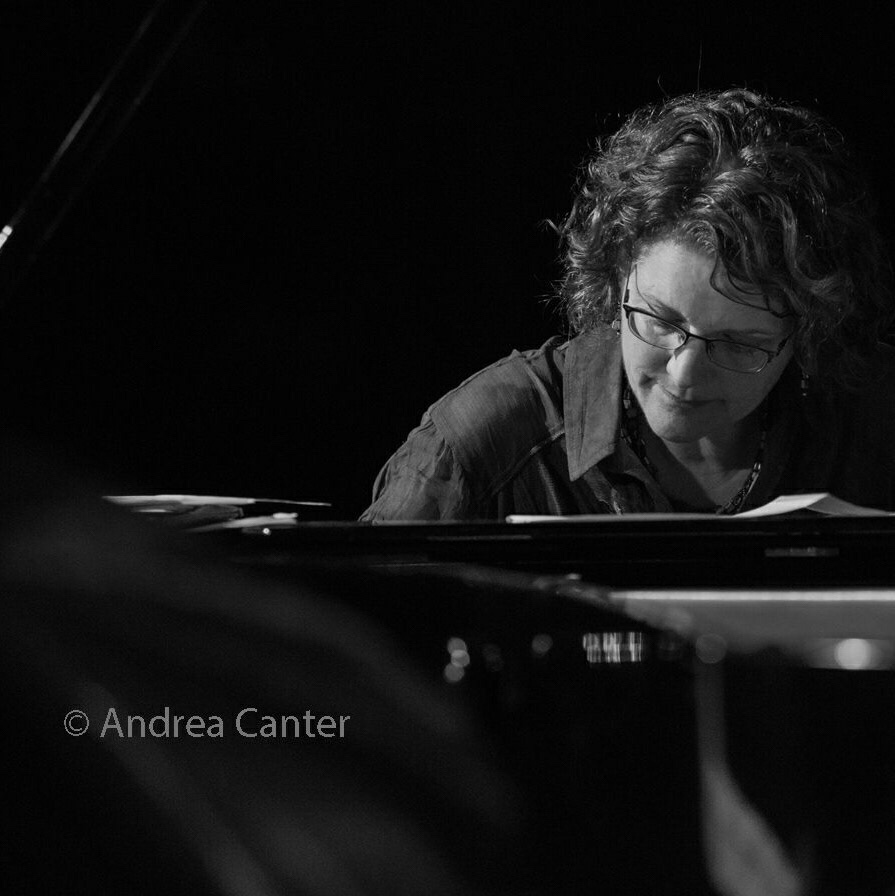
That is the question when you’re dealing with someone like Miles: “which Miles are we talking?” I can understand wanting to turn your ears off. Especially as an educator, you’re teaching all the time, you’re in front of bands…that can be emotionally and creatively exhausting.
Yes it can.
So to continue, you finished playing with Karrin Allyson, and what was going on in your life at that point?
That was around the time that I got my job at Stevens Point. I loved teaching at Stevens Point for a lot of reasons, but I was very green at teaching. I didn’t know what I didn’t know. It was very humbling. I was doing private and classroom teaching. Basically doing what I am doing now at Carleton. I was hired by Bob Case, who is a very fine trumpet player.
I just met Bob Case at a Hornheads gig I was playing at Pantages theater. He’s the head of Duluth now, right?
Yes that’s his hometown, he’s very happy to be back there.
So after doing some graduate work at Michigan, I move back to the Twin Cities and basically just freelanced and held some different residencies at various colleges. 2003 I got hired at Carleton and just slowly started building my thing there. It takes a long time.
You just recently became full time there, right?
Yes, just this Fall. So 15 years in.
Well you know, when you’re juggling being a freelancer, it can be hard. I got some great advice from my teacher Rodney Rogers at Lawrence University that I’ll never forget: “Laura, be flexible.” Someone asks you to be in a rock band…I was in a rock band for a while. I can’t stand playing rock ‘n’ roll! But I played because it paid, so be flexible. Now I’m writing choral music, which is a whole different world, but they commissioned me and I thought “OK let’s see where we can take this.” It changes the way you think about music which keeps you engaged and learning.
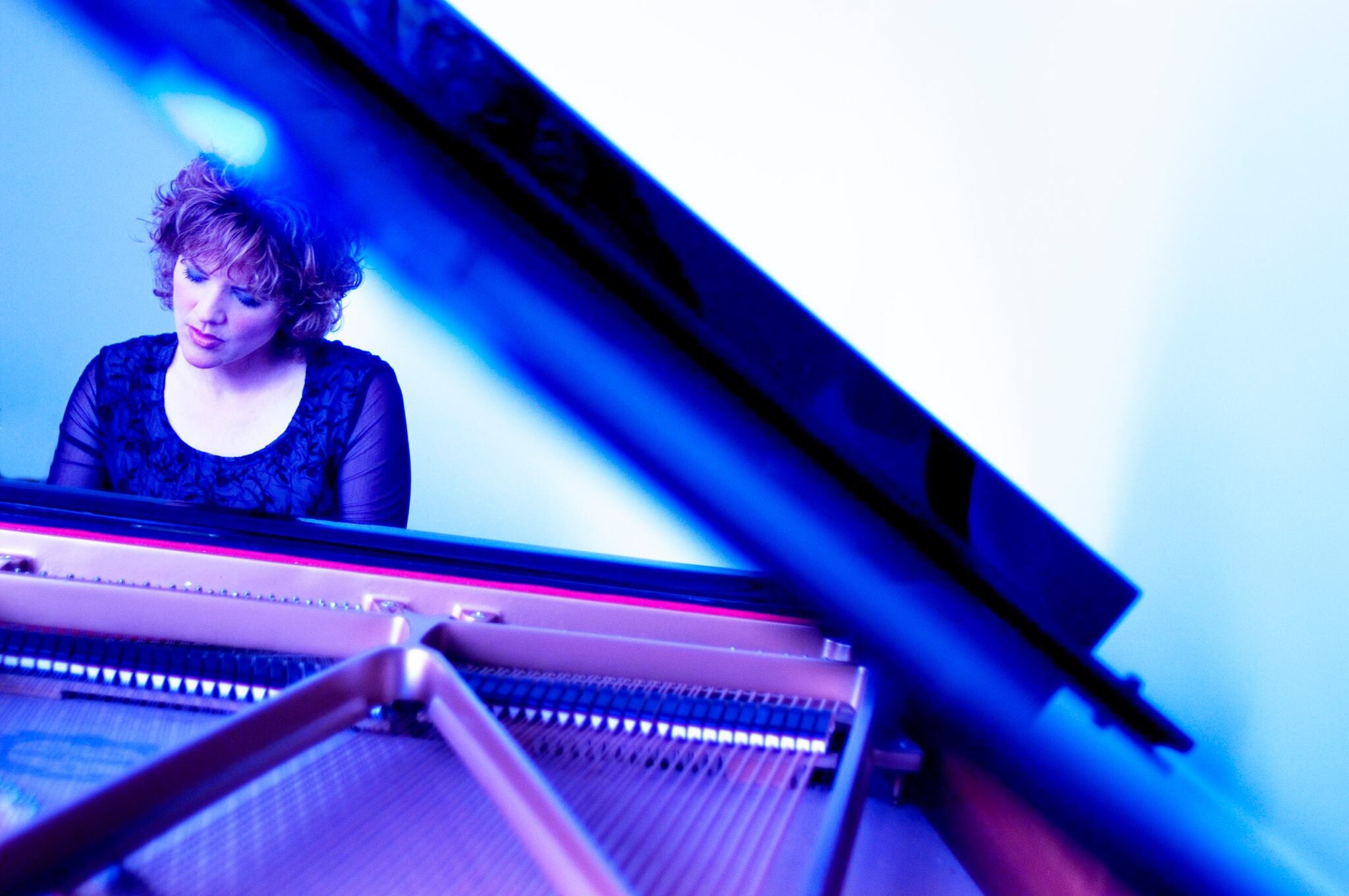
I’ve done some brass quintet stuff, some woodwind quintet stuff, some string quartet, and my group Lulu’s Playground is sort of like a chamber group that is trained in jazz improvisation. I feel like that’s happening more in classical music: people are expected to improvise as well. So how many pieces have you done for chorus?
Well it started with me setting a Christmas poem to music, and I entered it into the Christmas carol contest that Vocal Essence does every year. For whatever reason they chose my tune.
Probably because it was great!
Well it was fun, because you want to modulate, but you can’t make it sound impossible. When you’re pushing down buttons, you can take more chances chromatically.
Yeah, Fred used to talk about making each person’s part sound like a melody. I think about that a lot when I write. Like looking at Trombone 3 in my big band. The players play the line with more conviction and personality, because they feel like they can put personality into the line.
Yes! With the advent of composing on computers, you can hear playback of the song you’re writing. It takes a long time to write a simple piece, I think. Because it has to be simple, but it has to be worth listening to. It can’t be so simple that it’s boring. Vocal Essence then commissioned me to write another thing. They also had this remix program where they pair you with a composer to be your mentor, and I did that through the composer’s forum. Carol Barnett was my teacher, and I also took lessons with Libby Larson.
The latest project was a Langston Hughes project, and premiered at Orchestra Hall. His poems were given to me as an assignment, and I set those poems to music. That premiered in March of this year.
Wow!
Yes, it’s a lot of work. Vocal Essence takes chances, too so they had hip hop as a part of this program as well.
That kind of stuff keeps me thinking about music in a new way.
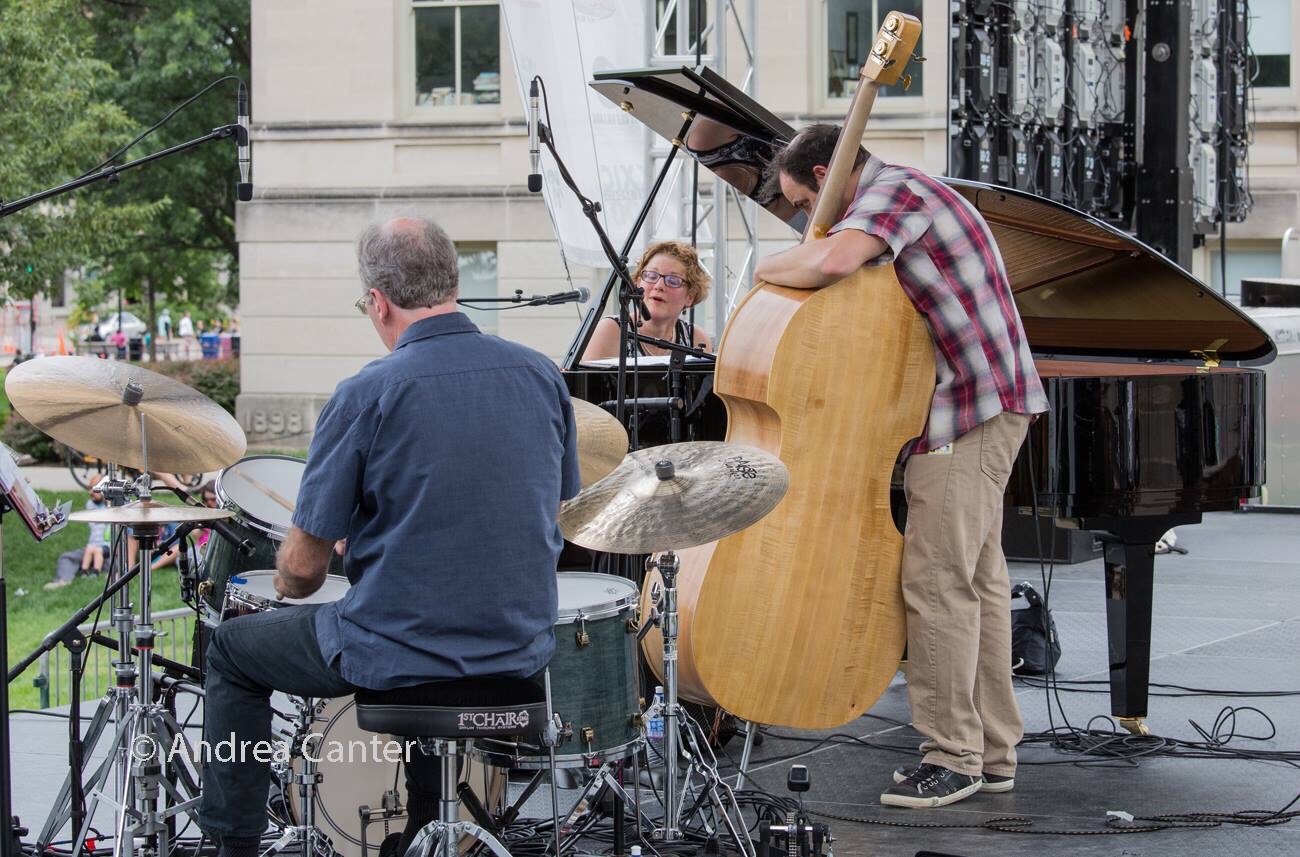
So being a composer, the head of the jazz department at a college, and doing your trio records and playing gigs… How are you finding balance in that?
I have found balance by saying no. So that my Summers can be a time of respite and rejuvenation. This year will be my first Summer with that approach, really. Carleton is great. The students are really smart, we have wonderful colleagues, a great campus. Good people.
We’re lucky in the Twin Cities. We’ve also got Crooners, the Dakota, Vieux Carre, Icehouse…
How many records have you done as a leader?
About seven. I also did some of these commercially themed target CDs that were commissioned. Lifescapes had me do some of those.
How do you get gigs like that?
Joel Sales was in charge of that, and he was a Lawrence connection.
Yes, many invaluable relationships formed at Lawrence for me as well. The fruits of those connections are still revealing themselves.
Going back to LU for their festivals, I always meet people that inspire me, make connections with amazing artists I wouldn’t have met otherwise.
It’s funny, you asked Fred about women to check out in jazz, and around when I was at Lawrence Maria Schneider and Ingrid Jenson were both guest artists.
And of course, Maria was the other classmate with me and Patty at Eastman for the summer program. She’s an amazing lady. I also got to play with Ingrid Jenson on a jazz festival in North Dakota back in 2000. It was an amazing experience meeting her. We’ve actually got some recordings of her, and Pete Whitman, and Phil Hey, and Gordy Johnson and me and it’s never been released. It’s just sitting. I still have the files.
Woe! When did that happen?
Maybe 2002?
What are you doing?! Get that mixed, get it in to the world! Would she be ok with you releasing it?
Oh yes, she gives me a hard time about it all the time. We just ran out of time. It’s always about time.
She was the Guest Artist at McNally a couple years ago.
Oh, yeah. I played on that! You did too!
Yeah! We got to trade on Moments Notice. I was just frantically shedding that before hand.
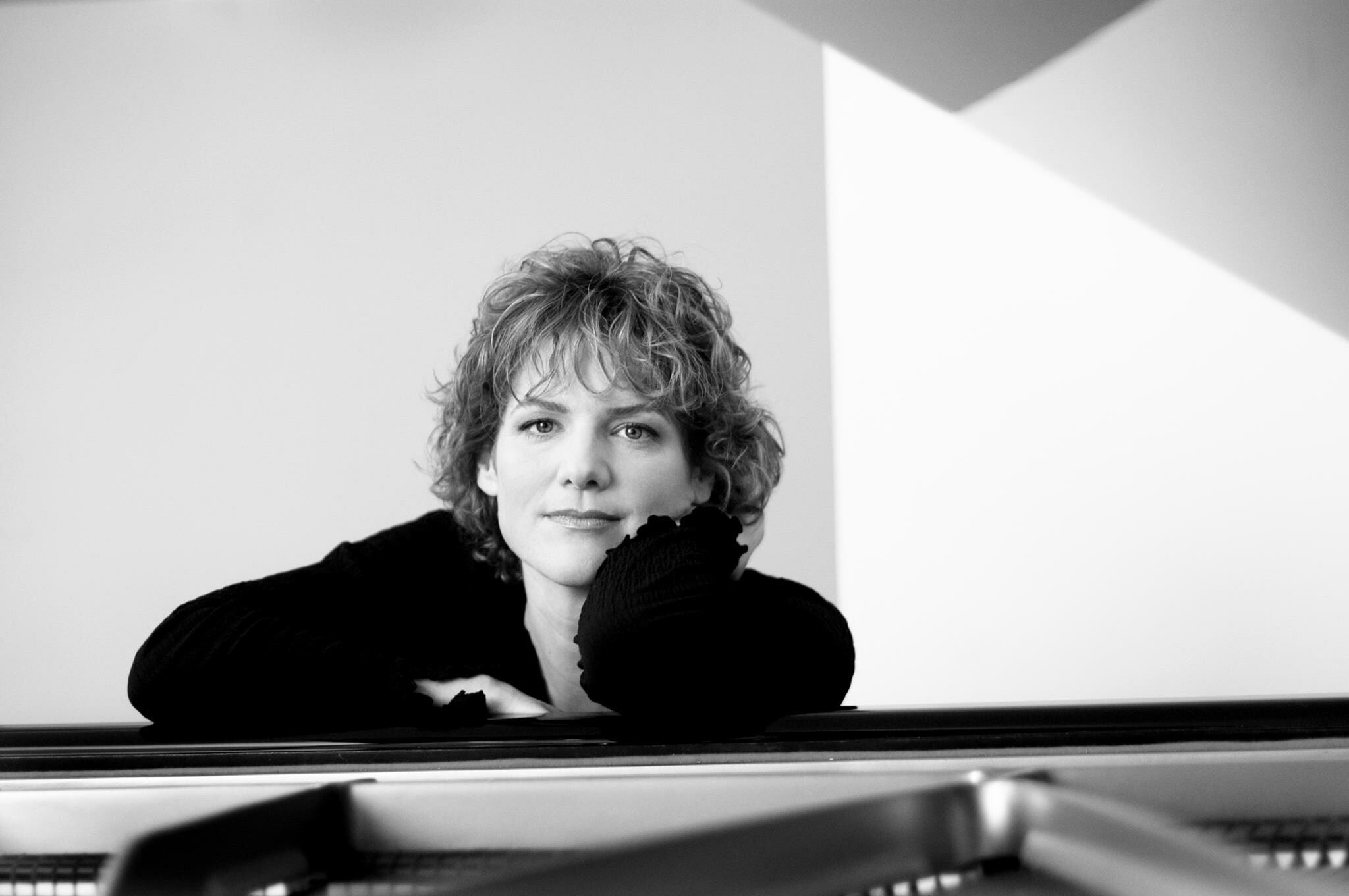
Yeah it was sad about McNally closing. We need to find places to play for these young musicians. I met Billy Taylor, who was the Guest Artist with Vocal Essence in 2006. I went to a masterclass, because he’s considered the father of jazz education. I expected it to be packed but there ended up being maybe 15 people there. Afterward I got to shake his hand, which I’ve always wanted to do. I point blank asked him “what do we need to do to keep this art form going?” And he looked at me like my life depends on it and said “you need to create more venues” and he gave me this look, you know, if looks could kill. When he was growing up, there was a venue on every corner. And everyone went out to live music. Recording is important, I think what you’re doing here is important, but nothing replaces live music.
So many people come to see my big band, and will come up to me afterward and say “I didn’t know that I liked this kind of music” and I think a big part of that is being in the room and feeling the energy of the music and the passion of the performers. I remember Russ Johnson came to Lawrence while I was a student and he said “never underestimate your audience. They can handle a lot more than you think.” That always stuck won me. I think a big part of the reason for that is that they can feel the intent behind the performance. The audience can sense sincerity and intent. I think that goes a long way to connecting to listeners that aren’t trained jazz musicians. That’s it, right? We have to reach people that aren’t jazz musicians.
I think of Maria Schneider and Joshua Redman, who both do this so well. Maria has done this twice now, where she told a whole story about hang gliding in Brazil, framing the person’s experience as they listen to the performance of her composition Hang Gliding. Pete [Whitman] and I saw Joshua Redman at first Ave. It was pretty funky and palatable. And here is Josh Redmond and he says “OK, now I want you to be open here” (I’m paraphrasing) “we’re gonna try something a little out and we’ll see what you think.” And the fact that he gave us a heads up you know, people might’ve been like “what the?” And got up and left. “Let’s see if you can handle this, I bet you can!” and I thought “good for him. He gave us a bunch of candy and now he’s making us listen a little bit differently.” People kind of woke up and thought “wow, I might be kind of cool because I’m here.”
Yeah make the people feel cool!
I think talking about the tunes, talking about the inspiration behind the tunes is great. Some bands just do that with the music itself. They shape the set in a way that prepares the listeners for something crazy to happen and then they bring it back in, even if they’re not talking to the audience in between tunes. I’ve seen Fat Kid Wednesdays do this so masterfully. Where they play a couple tunes, an Ornette tune or Monk tune, not crazy out, but angular. Then they’ll go way out and then bring it back in by swinging the hell out of Shiny Stockings or something. You’ll get to the point where you’re like “ahh I don’t know how much more I can handle” and then they give you some really inside swinger. Tension and release, tension and release through the set. That hang wasn’t for everyone, but they had a way of pulling you as a listener. Taking you way out and then bringing you back in. Personally, I like to talk about my music, but…
You’re right, not everyone likes to talk about their music. You have me thinking about a two hour set I saw of SF Jazz Collective where they didn’t talk.
Did you see them with Dave Douglas on trumpet?
No, it was Nicholas Payton I think. But Dave did a whole Mary Lou Williams record.
Yeah, he’s one of my all-time favorites. Soul on Soul!
That makes me think of my lessons with Lyle Mays in the mid 90s. I played one of his songs for him (imagine that) and I was like “I love this ending, how did you come up with this? What were you thinking” and he was like “oh, that’s just Stravinsky’s Petrushka” — luckily, I knew the reference, but I was amazed. At the time, jazz and classical were so separate for me. And of course, Stravinsky inspired Charlie Parker.
Yeah, Bird would quote Firebird. There’s that old story about Bird quoting Firebird with Stravinsky in the room and Stravinsky threw his drink over his shoulder in surprise and excitement. It’s pretty cool how much crossover there is.
I think it’s important. You’re classically trained, and so am I. I think the reason we’re talking about this is that we can’t lose this moving forward. There is this thing in academia where the jazz and classical people are in their own little worlds. And it’s all music. We need each other. And we need to make that clear.
Totally. I just saw Ambrose Akinmusire with a string quartet, rhythm section, and a hip hop artist. Ambrose wrote and arranged everything and it was sponsored by the St. Paul chamber orchestra. They did it at Amsterdam Bar and were doing it in NYC as well. Modern classical stuff with improvising trumpet and a hip hop artist. It was all of it right in once place.
Well this has been some exciting stuff. Thank you for inviting me and it’s been nice talking to you to. Let’s keep making music, it’s the antedote to all that ails us.
Indeed! It’s been great talking to you as well. Keep taking over the world!
————————————–
Tickets for Laura Caviani and David Milne in the Dunsmore Room at Crooners Thursday, May 10th 2018 – 7:30p
—————————————
Friendly Jazz Police PSA: Buy music that you love. Stream it all you want, but go buy it, too. A hard copy, vinyl, a digital download…when you buy your music, the artists you love get some money in return for making their great music. They do not get paid when you stream. Seriously. Go spend $10 or $20. Support the musicians you love!






